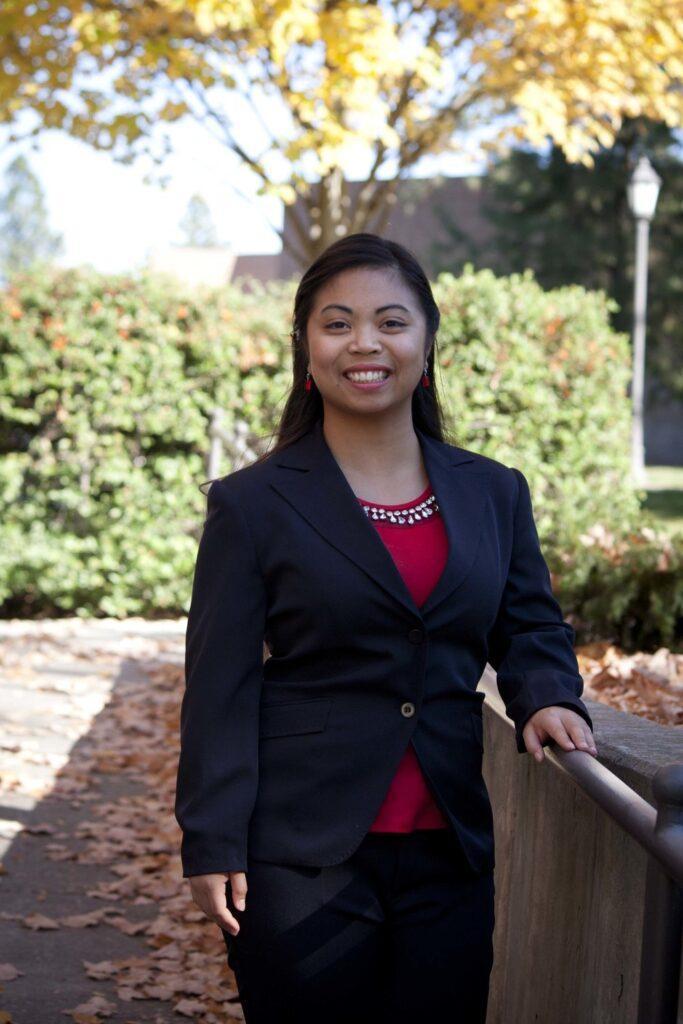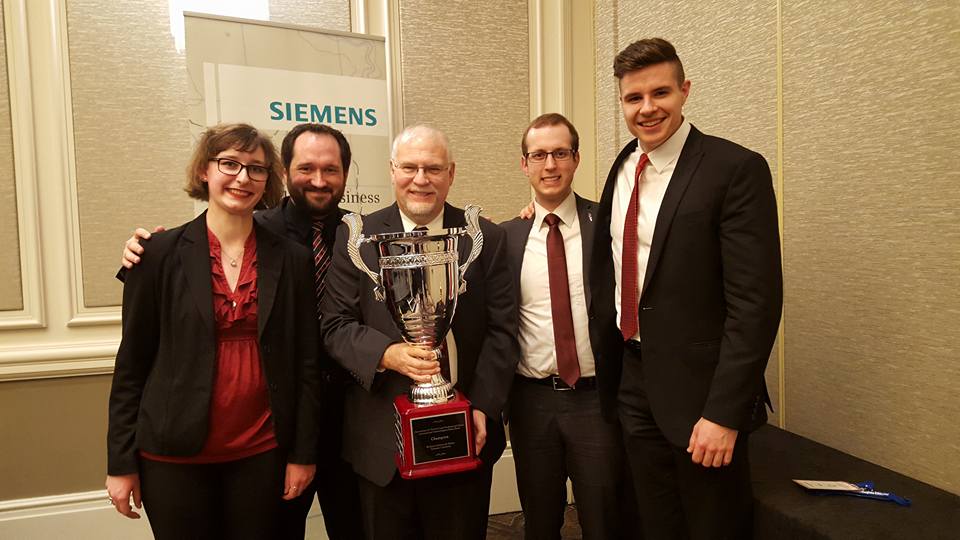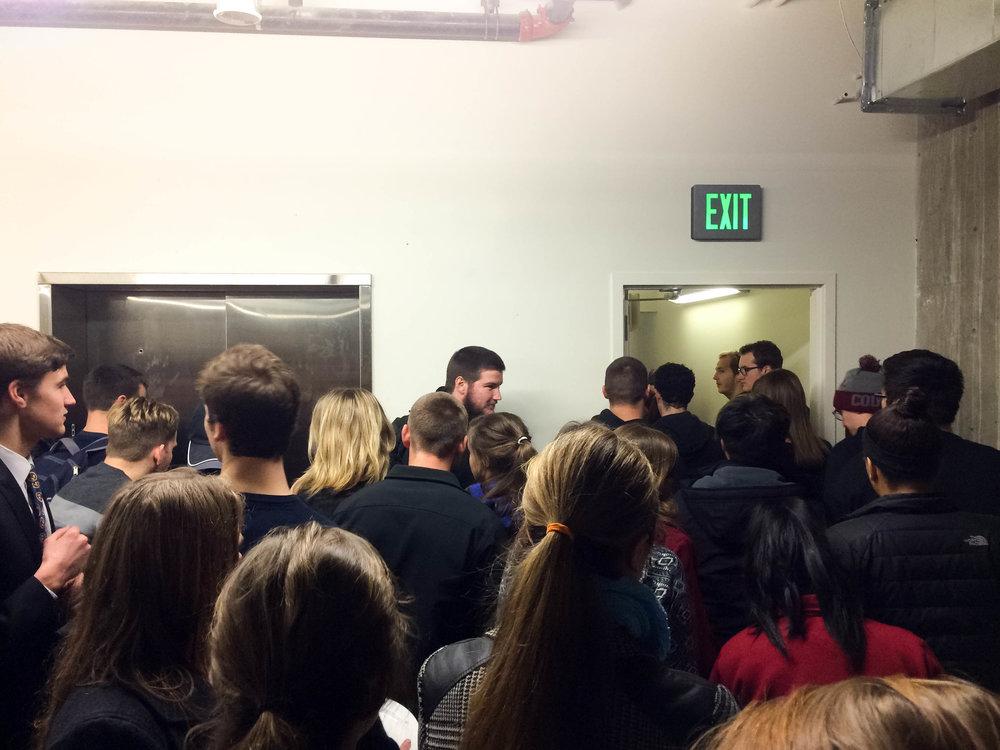
Last semester junior Jessica Razanadrakoto traveled the world by ship and earned the opportunity to positively impact her home country, Madagascar, with its first-ever summer camp.
Razanadrakoto said she didn’t know what to expect because she had never been on a cruise ship before, but she entered into a competition created by the Resolution Project, a non-profit organization dedicated to creating “leaders with a lifelong commitment to social responsibility,” according to the organization’s website.
The founders were tired of being referred to as the leaders of tomorrow and they decided to inspire the generation to be the leaders of today, according to their mission statement and story.
Through winning the Resolution Fellowship Razanadrakoto and two teammates received a U.S. Grant to develop a summer camp in her home of Moramanga, Madagascar.
Razanadrakoto believes Madagascar’s untouched potential helped them win. Razanadrakoto’s team’s camp would be the first summer camp in Madagascar, Razanadrakoto said.
“Madagascar’s education is based on memorization. Students’ performance is measured on how well they memorize the information and how well they get on the test,” Razanadrakoto said. “Though grammar, math, and history for instance could be done this way, leadership skills can’t.”
The goal of the camp is to teach the kids of Moramanga the leadership skills they don’t learn in school, Razanadrakoto said.
The first year of camp will begin in July of 2016 with an expected enrollment of 30 students.
“We will be teaching students leadership skills through sports and activities, such as Lacrosse and the human knot,” Razanadrakoto said.
An ideal day at camp would include sports in the morning, followed by lunch. Then arts and crafts and other activities, and closing the day with a discussion session on what the students learned on and off the field and why it matters in their everyday life, Razanadrakoto said.
The team working at the camp will be made up of Razanadrakoto’s winning team and five native Malagasies and five international volunteers. The 10 leaders will work with students 10-15 years old for two-week periods who were suggested by teachers in Moramanga.
Razanadrakoto had the opportunity to join in the competition that Resolution Projects hosts during the Semester at Sea program. Resolution Projects brings their Resolution Fellowship to the Semester at Sea program to find undergraduate students and helps “them implement their idea and develop as socially-responsible leaders,” according to the program description.
She struggled to find a team at first, but then came together with two other women, Laura Patterson, a D1 lacrosse player, and Sophia Connot, a student heavily involved in student leadership. Together, these near-strangers combined their skills to build a sports camp in Madagascar for leadership development for today and tomorrow, Razanadrakoto said.
The idea for the camp partially originated from Razanadrakoto’s experience in the U.S., she said.
After moving from Madagascar she began attending high school in Seattle her sophomore year. During that time she recognized Madagascar doesn’t offer nearly as many extra-curricular activities as the United States, Razanadrakoto said.
Participating in the Resolution Project gave her the chance to increase the opportunities offered to children in Madagascar, she said.
The project was not an easy one, Razanadrakoto said.
“This [process] took late nights and very little sleep,” Razanadrakoto said.
The Resolution Project competition consists of three rounds of presentations before a judging panel in which teams explain their plans for finances and organization.
The hard work paid off, Razanadrakoto said. The team felt confident in their idea after the final stage of presentations, where they competed against three other teams. She and the other members of their team knew in the back of their minds that they would win because of how well the presentation had gone, she said.
Razanadrakoto and her teammates want to create as many leaders as possible in the country, while allowing the students to have fun at the camp.
Razanadrakoto’s parents gave her a piece of land that is big enough for a school. The land is in the same area as the camp so she hopes to be able to incorporate this to further the purpose of the camp, she said. Razanadrakoto plans to be at the camp for the first few years, eventually planning on teaching others how to sustain the camp.
The time at sea wasn’t all about the project. Class would stop when a family of dolphins swam by, Razanadrakoto said of her time on the ship.
They spent two to 14 days on the water between ports, Razanadrakoto said, calling the trip amazing. The students on the ship took classes and admired the sights and cultures that come with a trip around the world.
Their journey included 12 countries, many of which were in Africa and Asia.
Departing from Ensenada, Mexico, the ship’s passengers and crew gathered on the upper deck and clapped. They continued clapping as they saw beautiful sunsets and sunrises the likes of which they had not experienced on land, Razanadrakoto said.
Razanadrakoto initially went on the trip because “traveling the world was on her bucket list” and when she saw the Semester at Sea program she couldn’t help but agree to it, she said, adding that she was excited to get to know other peoples and cultures.
Students who have an interest in a similar trip can find more information at semesteratsea.org.
More information on the Resolution Project can be found at www.resolutionproject.org. Anyone who wishes to get involved with Razanadrakoto and her team’s project can apply as an international volunteer as the camp gets started. Donations toward sports equipment/volunteers travels are also welcome as the camp enters its growth period, Razanadrakoto said.
Contact Parker Postlewait at ppostlewait16@my.whitworth.edu









 Spokane?
Spokane?